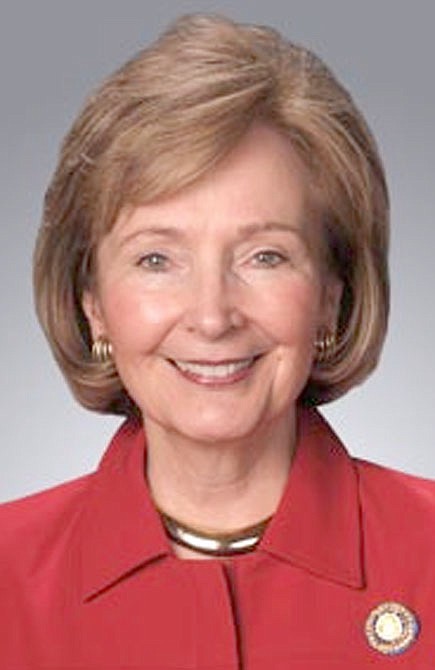LITTLE ROCK -- The governor presented his balanced budget proposal to legislators, who will act on the plan during the fiscal session that begins on Feb. 12.
The bulk of the increased spending next year would be for the Medicaid program, which subsidizes health care for people with disabilities, the elderly who need long term nursing care, and low-income families.
The Division of Children and Family Services, which recruits foster families for children who have been abused or neglected, is set to receive an additional $7.3 million. That will allow it to hire 65 additional caseworkers.
Under the governor's proposal, state prisons would get an additional $3.5 million, bringing their estimated total from state general revenue to $353. The agency that administers drug courts, parole and probation is due to get an additional $1.7 million, bringing its total to almost $88 million for next year.
Although the governor proposes a balanced budget every year, it is the legislature that has final authority to review and approve all state agency spending requests.
For example, during budget hearings when the governor presented his plan, one senator expressed a desire to increase funding above the governor's recommendation so that the state can hire more parole and probation officers. The average caseload is 120 for about 468 officers. The senator said he would introduce an amendment to add 30 new officers.
During the fiscal session legislators will adopt budgets for state Fiscal Year 2019, which begins on July 1. Fiscal sessions last for 30 days, but can be extended to 45 days if a 75 percent majority of each chamber votes to extend. The state Constitution does not allow for an additional extension beyond 45 days.
The Arkansas legislature used to meet every two years, but voters approved a constitutional amendment to authorize yearly sessions, with session in even-numbered- years strictly devoted to appropriations. The first fiscal session was in 2010.
Although the legislature will only consider budget bills during the fiscal session, there is a mechanism for considering non-budget matters. However, it requires the approval of a supermajority of two-thirds in each chamber to be able to introduce a non-budget bill.
Typically during a fiscal session, the legislature will approve about 300 separate appropriations to authorize spending by state agencies and institutions of higher education.
The proposed budget for next fiscal year is based on an estimated increase in spending of almost $173 million, which would bring the total of state general revenue spending to $5.6 billion.
Arkansas also collects special revenues, such as motor fuels taxes for highway construction, and receives federal matching funds for highway programs, education and health care. This fiscal year the total of all sources of government spending in Arkansas will be an estimated $29.6 billion.
Medicaid relies heavily on federal matching funds. Arkansas, like other relatively poor states, receives a high percentage of matching funds compared to prosperous states. The federal government has matched the Medicaid funding by paying for 70.87 percent of total costs. However, due to recent improvements in per capita income, the match rate is dropping slightly, to 70.51 percent. The change means that the state will contribute an additional $48.6 million to the total cost of Medicaid in Arkansas.
•••
Editor's note: Arkansas Senator Cecile Bledsoe represents the third district. From Rogers, Sen. Bledsoe is chair of the Public Health, Welfare and Labor Committee.
Editorial on 01/17/2018
